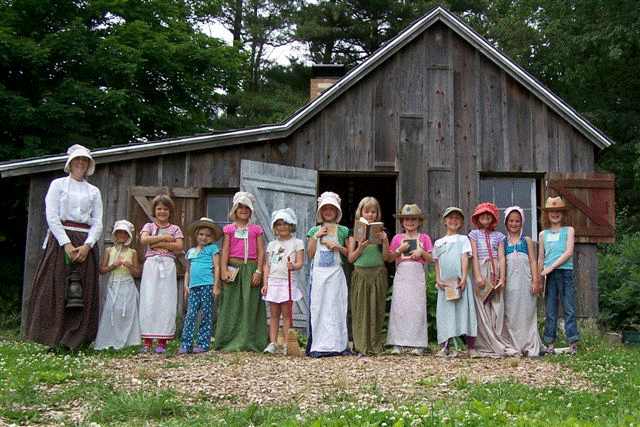The Aldo Leopold Nature Center’s Children’s Shack is a historically accurate, child-scaled replica of Aldo Leopold’s famous retreat.
Designed to teach children about Aldo Leopold and the simplicity with which he lived on the Wisconsin landscape, The Children’s Shack was created as a joint project of the Aldo Leopold Nature Center, the Aldo Leopold Foundation, and The Renschler Company who donated materials and labor. Local craftsmen, carpenters, building suppliers, and community members also contributed to the project.
Leopold and The Original Shack
Aldo Leopold (1887-1948) is known for his thoughtful essays and his practical approach to land use. He was an internationally respected scientist and conservationist instrumental in formulating policy, promoting wilderness, and restoring land back to health. He was instrumental in establishing the first official “wilderness area” in the United States (the Gila National Forest), helped to create The Wilderness Society, and founded the field of Wildlife Ecology. But perhaps his biggest contribution was his articulation of “The Land Ethic” (that we are part of a natural community of interdependent parts) and his pioneering work in what is now known as restoration ecology – bringing the land back to health.
Leopold’s “Shack” was originally an abandoned chicken coop that he and his family renovated in the late 1930’s as a weekend retreat near the Wisconsin River. At the Shack, Leopold and his family experimented with land restoration on a worn out farm in the sand counties of Wisconsin. It was this location that inspired most of the essays found in his landmark work, A Sand County Almanac. Published in 1949, the Almanac has been translated into nine different languages and is still read and studied around the world.
The original Shack is a small post-and-beam structure, constructed with castoffs, found windows and door, and recycled wood planks. It has a fireplace made from local stone and originally had beds made out of snow fencing and hay. It is considered a Mecca for environmentalists, historians, and educators, and has the distinction of being the only chicken coop on the National Register of Historic Places.
Bringing the Shack Experience to Children
While Leopold’s Shack is a thing of beauty, it is far too fragile for the tens of thousands of children, families and teachers who wish to visit it each year. As a solution, ALNC’s Children’s Shack was created to be used as a teaching shelter and to demonstrate how Leopold lived simply and lightly on the land. Specializing in hands-on, outdoor environmental education for young children, the Aldo Leopold Nature Center uses the child-sized replica to provide award-winning programs predicated on Leopold’s philosophy to: “teach the student to see the land, to understand what he sees, and enjoy what he understands.”
Shack Construction
Like the original Shack, the children’s replica was built with found objects and recycled materials. Siding from a demolished barn, flooring from 100-year old planks, local stone and an assortment of old windows found in dumpsters and dump sites completed the project and followed Leopold’s practice of using materials that floated down river to his abandoned farm.
In addition, the contributions of others added to the authenticity of the project. Volunteer Kenneth Kidder donated hand-made copies of some of the rustic furniture found in the original Shack. Comments Kidder, “When you look at this furniture made from driftwood, old planks, and such, and the way it is made, it is so very unique. Leopold’s hand is all over this place.”
At its dedication, school children planted white pine seedlings around the building site, as Aldo Leopold and his children did at the original Shack over 60 years ago.
The Children’s Shack is used during school field trips and for special family programs, including Maple Syrup Fest. The Children’s Shack compliments other Leopold-based programming at ALNC like the “Leopold Interpretive Trail for Families” which won the national Kodak American Greenways Award in 1998. Other Leopold-based programming includes ALNC’s video documentary for children, “Aldo Leopold: Learning from the Land” which is regularly broadcast on public television and received the 1999 Award of Merit from the Wisconsin Historical Society. In addition, ALNC produced “Who Was Aldo Leopold: A Small Book for Small Children”, a Leopold exhibit for children, conducts the Leopold Education Project training for teachers, and offers dozens of Leopold-inspired nature programs for children and families at both the Monona and Black Earth campuses. The Aldo Leopold Nature Center’s main facility at the Monona Campus was constructed in 1997 by The Renschler Company and features green building techniques, recycled materials, and a renewable energy system. It also features eight historic 20-foot pine logs originally planted by Aldo Leopold in the 1930’s near the Shack.


